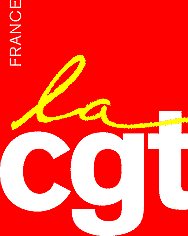France gets about seventy five percent of its electricity from fifty eight nuclear power reactors located at nineteen power plants around the nation. Recently, these power stations became targets for national strikes called to protest unpopular labor reforms being promoted by the conservative French government.
Eleven nuclear power stations in France reported lowered production of electricity today due to strikes and protests. Total nuclear operating capacity was reduced by six percent. EDF is a state-controlled company and is mandated by law to maintain a minimum output from the nuclear power reactors that they manage during any strike. French authorities are confident that in spite of the reduced nuclear production, there will not be power blackouts in France. The strike will raised costs for EDF because they will have to start up coal and gas fired power plants which cost more to operate. They will also have to buy more expensive electricity from other nations. Frances import of electricity quadrupled from the day before the strike.
Members of the General Confederation of Labor (CGT) union at the EDF utility that operates all the nuclear power plants in France joined the national strike Thursday. The striking workers constitute about ten percent of the EDF workforce. Workers at the Gravelines nuclear power station in northern France burned tires and handed out flyers critical of the labor reforms. Workers at the Nogent-sur-Seine nuclear station set fire to barricades blocking two roads that lead to the plant. Employees of the Tricastin nuclear power plant in southern France picketed outside of the plant.
The French Prime Minister insists that the strikes and protests will not stop the proposed labor reforms from being implemented. The package of reforms will now go before the French senate where a right-wing majority will insure its passage. In a conciliatory gesture, the Prime Minister said that there was always room for modifications and improvements. The fact that a month long international soccer tournament is scheduled to start in two weeks in placing increased pressure on the Prime Minister. Serious fuel and power outages might interfere with the tournament which would be bad publicity for France.
During the investigation following the terrorist attacks in Paris last fall, Belgian police discovered that some of the perpetrators had been videotaping the movements of an official at a nuclear installation in Brussels. There was a fear that the terrorists may have been planning an attack to obtain nuclear materials for a dirty bomb. A couple of years ago, two workers at a Belgian nuclear power plant went to Syria to train with ISIS. A few years ago, someone, never identified, opened a single valve at a Belgian nuclear power plant and drained seventy five thousand gallons of oil used to lubricate the turbines. The resulting damage at the plant forced its closure for months while repairs were carried out. Nuclear power plants are prime targets for terrorism and sabotage. With the social and political turbulence at French nuclear power plants caused by the strikes, the French authorities have to be worried that there is a significant danger that the confusion and chaos caused by the national strike at least eleven of the nineteen French nuclear plants might be used as cover for an attack or sabotage.
General Confederation of Labor logo:
